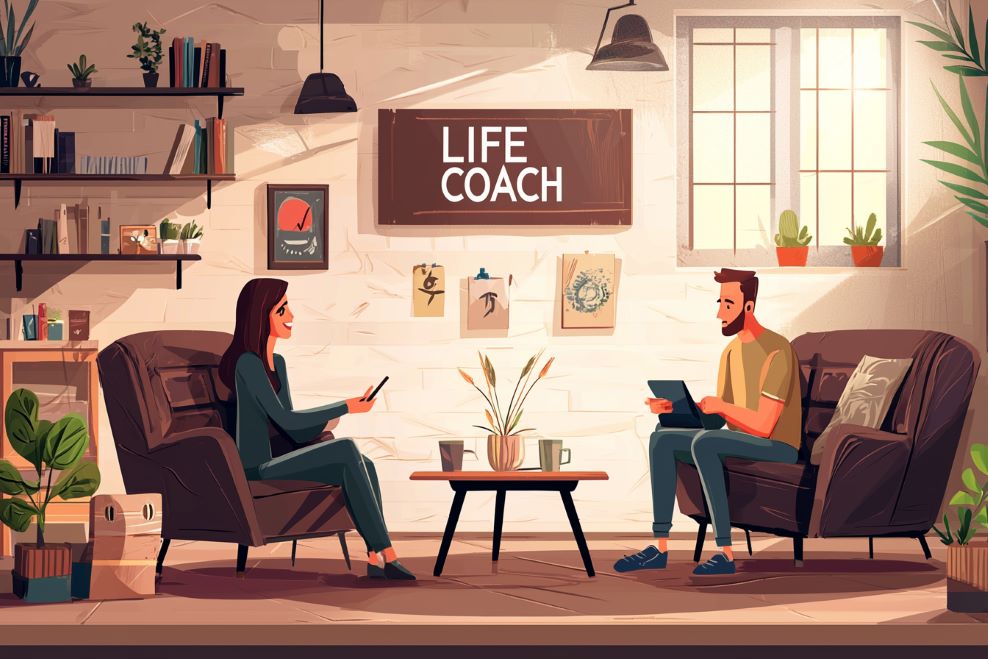What Are the Life Coach Credentials? Your No-BS Guide to Certification

Let’s cut to the chase: you’re here because you’ve seen a hundred coaches online claiming to be “certified,” but you’re wondering: What does that actually mean? Is it like getting a PhD in personal growth, or did they just pay $50 for a PDF certificate after a weekend webinar?
As someone who’s navigated this maze (and helped hundreds of aspiring coaches do the same), I’ll break down the real deal about life coach credentials. No fluff, no sales pitches—just the truth about what matters, what’s overhyped, and how to avoid wasting money on paper that doesn’t mean a thing.
What Is Life Coach Certification?
Think of certification like a driver’s license for coaching. It doesn’t mean you’re the next Lewis Hamilton, but it shows you’ve passed basic training and won’t crash the car (or your client’s self-esteem). A legitimate certification involves:
- Structured training: 50–300+ hours of coursework covering coaching ethics, techniques, and psychology.
- Practical experience: Supervised coaching sessions (like medical residencies for therapists).
- Testing: Written exams or recorded sessions evaluated by pros.
For example, the International Coach Federation (ICF), the gold standard in coaching, requires 60+ hours of training and 100+ client hours for their entry-level credential.
But here’s the kicker: certification isn’t legally required. Unlike therapists or nurses, anyone can call themselves a “life coach.” That’s why credentials matter—they separate the pros from the Instagram gurus selling toxic positivity.
The Big Players: Which Life Coach Certification Is the Best?
Not all certifications are created equal. Let’s compare the heavyweights:
| Certification | Issuer | Hours Required | Cost | Best For |
|---|---|---|---|---|
| ACC (Associate Certified Coach) | ICF | 60+ training, 100+ client hours | 2,500–2,500–10,000 | Coaches seeking global credibility |
| CPC (Certified Professional Coach) | iPEC | 320+ training hours | 4,000–4,000–12,000 | Holistic or corporate coaches |
| NBC-HWC (National Board Certified) | NBHWC | 75+ training, 50+ client hours | 2,000–2,000–6,000 | Health/wellness coaches |
| CLC (Certified Life Coach) | Certified Life Coach Institute | 40+ training hours | 1,500–1,500–3,000 | Budget-focused new coaches |
Key Takeaway: If you want to coach executives or charge premium rates, ICF or iPEC credentials are worth the investment. For wellness niches, NBC-HWC is becoming the go-to.
Life Coach Certification Programs: The Good, the Bad, and the Scams
The coaching industry is a Wild West of online courses. Here’s how to spot quality:
1. Accredited vs. Non-Accredited Programs
Accreditation means a third party (like ICF) has vetted the program’s curriculum. Non-accredited courses can still be good—but they’re riskier.
Pro Tip: Check the ICF’s directory of accredited schools. Top picks include Coach U and Institute for Professional Excellence in Coaching (iPEC).
2. Specialized vs. General Certifications
Specialized programs (e.g., ADHD coaching or career transitions) often dive deeper. For example:
- Health Coach Institute for wellness
- Relationship Coaching Institute for couples
3. Time Commitment
Most programs take 3–12 months. Avoid “certify in a weekend” deals—they’re about as credible as a TikTok degree.

Why Bother? The Real Benefits of Certification
I’ll be honest: getting certified is a pain. But here’s why thousands of coaches do it:
- You’ll Actually Know What You’re Doing
One study found that 68% of clients prefer certified coaches, citing “trust in proven methods” (Source: Life Purpose Institute). - You Can Charge More
Certified coaches earn 42% more on average than uncertified peers (Transformation Academy). - Ethics Matter
Certified coaches follow codes of conduct (e.g., confidentiality, no MLM pitches). One Reddit user shared: “My uncertified coach tried to sell me essential oils mid-session. Never again.” - Insurance Requirements
Many clients and companies require proof of certification for liability insurance.
The Alternative Side: When Certification Doesn’t Matter
Let’s balance the scales. Certification isn’t a magic ticket if:
- You’re a natural connector: Some people have innate coaching skills (think Oprah-esque intuition).
- You niche down hard: A former CEO coaching startups may lean on experience over credentials.
- You’re on a tight budget: Many successful coaches start uncertified, then invest later.
But tread carefully. As noted on Reddit, uncertified coaches often hit plateaus in client trust and pricing.
How to Choose Your Path: 3 Questions to Ask
- What’s your niche? Corporate clients demand ICF. Wellness? Aim for NBC-HWC.
- What’s your budget? Community colleges offer affordable ICF-accredited courses.
- Do you need flexibility? Self-paced online programs (like Coach Training Alliance) work for busy schedules.
The Certification Process: Step-by-Step
- Research programs (use the ICF directory).
- Complete training (usually 6–12 months).
- Log client hours (pro tip: offer free sessions to friends).
- Pass the exam (ICF’s test has a 65% pass rate).
- Maintain credentials (ICF requires 40+ continuing education hours every 3 years).
Red Flags to Avoid
- No practical training: If a program doesn’t require live coaching practice, run.
- Pressure to upsell: Some schools push expensive add-ons (like $5,000 “mastermind” groups).
- Vague accreditation claims: “Recognized worldwide” means nothing without third-party validation.
Final Verdict: Is Certification Worth It?
If you’re serious about coaching as a career—yes. Clients Google “what are the life coach credentials” for a reason. They’re savvy. They want proof you’ve put in the work.
But if you’re testing the waters or coaching as a side hustle? Start with low-cost courses like Transformation Academy ($497), then upgrade later.
Your Next Move
Ready to dive in? Bookmark the ICF’s credentialing guide or join free webinars from top schools. And remember: the best credential is a track record of transformed lives. Certificates open doors, but your impact keeps them open. Find the right life coach near you in our directory.